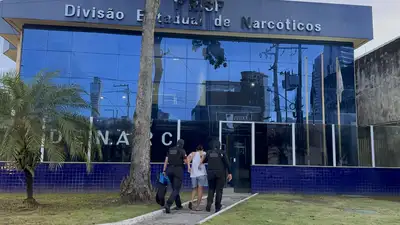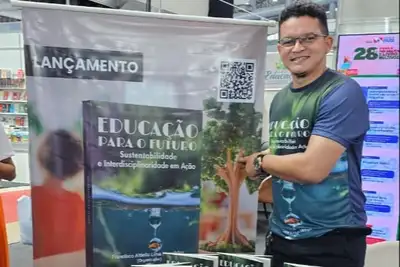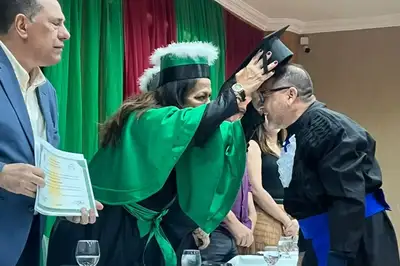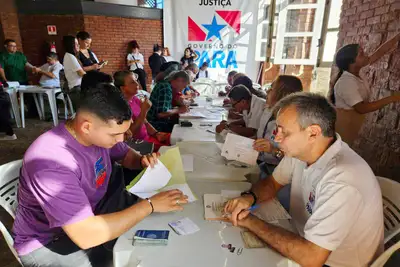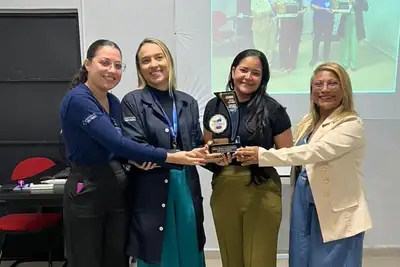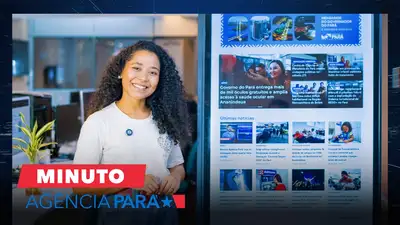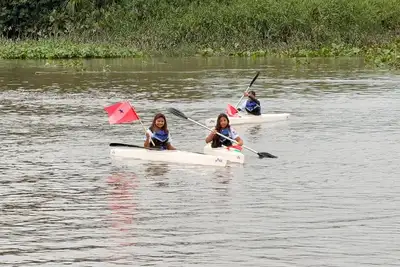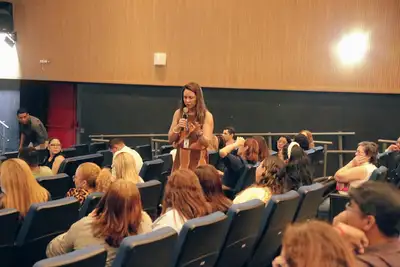Coema defines new members with action throughout the state for adjustment in the composition of the council
The Non-Governmental Organizations that will occupy the positions in the State Environmental Council of Pará have been defined

The State Environmental Council (Coema) met on the afternoon of last Tuesday (25) in an Election Assembly, presided over by the Deputy Secretary of Environmental Management and Regularity of the Secretary of Environment, Climate and Sustainability of Pará (Semas) and Executive Secretary of Coema, Rodolpho Zahluth Bastos, to vote on the six NGOs that will occupy a permanent position on the Council. The assembly took place in the Plenary of the Semas headquarters building.
The process of selecting the new organizations occurred through the Public Call Notice No. 001/2025/Coema, aimed at selecting six civil society entities, especially non-governmental environmental organizations operating throughout the state. The central objective of the notice was to adjust the composition of Coema, due to the need for compliance with the parity requirement between public power institutions and civil society.
Currently, civil society representation in Coema is majority, making this institutional realignment essential. The public call was promoted precisely to ensure that the Council returns to the parity format established by the Constitution, strengthening its democratic character and expanding the legitimacy of its deliberations.
It is important to emphasize that the notice faithfully observed the legal principles governing processes of this nature. Broad competition is among the foundational principles of public calls, and it is prohibited for public agents to admit, foresee, or tolerate clauses that restrict, compromise, or frustrate the competitive nature of the process. Thus, all stages were conducted transparently, ensuring equal conditions for the participating entities.
The Executive Secretary of Coema, Rodolpho Bastos, understands the need for a more qualified and constructive debate to address the issues that fall under the Council's jurisdiction and spoke about the new NGOs in the body. “We had a good vote for this management. We have a year of challenges ahead. It is important to see that we are diversifying the themes of debate and that new councilors can further contribute to the dialogue. The plenary held demonstrates an important moment of listening and approaching society. I want to acknowledge the work done in the plenary. This type of initiative brings Coema even closer to the population and strengthens the dialogue with the councilors. I congratulate everyone for the collective effort,” he emphasized.
Voting - The voting was conducted entirely online, and only the councilors present in the plenary could vote. 11 institutions were present, providing a quorum for deliberation. The councilors had 6 votes to choose from the 7 possible organizations.
During the extraordinary meeting, those responsible for defending each organization were able to explain their reasons and faced questions from the council members. The inquiries served to clarify the role of each in Coema and how they would contribute to the decision-making process.
Result - The criteria presented in the arguments were essential for the conclusion and closure of the votes, being taken into account in the decision-making of each present councilor. Based on the voting recorded in the electronic form, the approved institutions to join Coema are:
- Rare Association of Brazil
- International Council for Agroforestry Research
- Federation of Indigenous Peoples of the State of Pará
- Union of Mineral Industries of the State of Pará
- Foundation Live and Preserve
- Greencarbon Institute of the Amazon
During the closing of the plenary, councilor Mauro Márcio Tavares da Silva, representative of the State Department of Education of Pará, highlighted the importance of this moment for the council and for the State, thanking the presence of all the involved institutions. “It is very positive to see this level of diversity and engagement in the composition of Coema. The entry of these organizations expands our capacity for dialogue and strengthens the collective construction process that we seek for environmental policies in Pará. I thank everyone for their efforts and reinforce our enthusiasm with the contribution that each entity will bring to the discussions and decisions from now on,” pointed out the councilor.
Coema reaffirms its commitment to qualified social participation, strengthening environmental policies, and expanding dialogue with the various sectors involved in the State's sustainable agenda. The presence of institutions with distinct and complementary trajectories strengthens the decision-making process and contributes to the collective construction of solutions that promote environmental protection, responsible development, and continuous improvement of socio-environmental governance in Pará.
Text: Lucas Maciel – Ascom Semas



